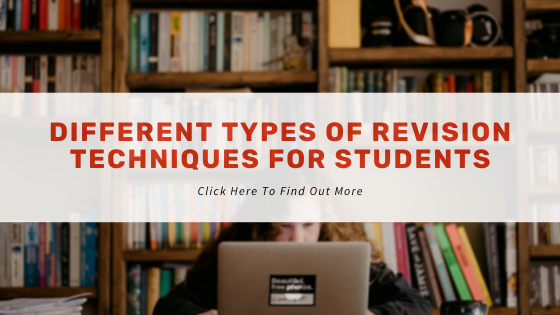This year as a whole is a lot different for everyone, especially students.
A large population of students are currently progressing through their schoolwork at home, but this can lead to them losing motivation and willpower to carry on revising for their all-important exams, whether they be mocks, GCSE’s or their yearly progress exams, they still need to keep focused, like they would at school.
In this blog, we are going to go through some effective revision techniques that can be recommended to your students if you are a teacher, or to go through with your child if you are a parent.
Right now, it is so important we keep the progression going.
Past Exam Papers & Questions
A revision technique that will never fade. Referring back to past exams and questions you have originally gone through with your students are the perfect technique to help them boost their knowledge on a specific topic and so help them focus on how they can gain the extra few, essential marks to achieve that higher grade.
Now is the best time to go through past work, as we now have the free time to sort out everything that has been pushed to the side. Organisation is key!
This task can be done by the students alone, during an online class, or maybe a task that can be done between a student and a family member/friend over video call.
Be Visual!
Without a doubt, there will be a high majority of students in your class who prefer to learn more visually, so why not associate work with graphics and more visual representations where possible?
Students need to do more than just reading black and white text and using highlighters, they need to be actively revising and not associating it as a chore. Introducing graphics and visual learning can be the step to helping students who struggle to focus, achieve amazing grades.
To find out more about new online platforms you can incorporate into your online classes and learning resources, feel free to take a look at our online resources blog, here.
Videos
Where do you look for tutorial videos online? YouTube of course!
Every minute, YouTube has 300 hours of video uploaded onto their site, therefore making this online resource an amazing opportunity for educational content, from the comfort of your own home.
There are thousands of educational tutorials and walkthroughs that help to cover an abundance of topics, some in a highly engaging way that can help students remember. Using YouTube is basically having your own online tutors at your fingertips, for both teachers and students, at whatever time is convenient for you.
TIP: Use the hashtag #education and other relating hashtags to see corresponding videos that can help you.
Quizzing
Quizzes are an amazing form of teaching/revising that can help transform the way students feel about learning.
If you are a teacher who is currently using video calls for your classes, then you can easily collect questions that you can then form into a fun lesson, where after they need to collate more information about their answers and educate themselves about any questions they got wrong as part of their revision strategy.
This is also a great way to see the weak and strong areas of your students.
It is also worth trying Kahoot! It is a digital resource that enables you to create tailored quizzes for your class and duplicate and edit others, so you can benefit your students as well as sharing your tailored quizzes to other teachers within your sector. Alongside this, you can also add in engaging images that especially help students whose brains are more visually stimulated.
If you would like to find out more about Kahoot! Click here.
Flashcards
Flashcards are not only great for stimulating your knowledge visually, but they initially help to test everything that students are already familiar with, and not just summarising.
Here is a suggested technique for creating revision flashcards, this can be an amazing homework/revision suggestion to provide your students –
On the front of the card, write a key term or question.
On the back of the card, answer that question or write a definition for the term.
Try to guess the answer/definition on the front before checking the answer on the back.
Advise students to use this technique alongside another beneficial revision strategy they enjoy, as this will help them massively to improve their knowledge and get those extra marks.
Flashcards are useful for learning the relationship between two pieces of information.
Advice To Focus On
In terms of revision, it is never too early to introduce revision style homework or suggesting they start doing this. The worst thing for a student is when they leave all their revision until the last minute and then ultimately receive the grades that don’t reflect their true knowledge.
A great way to start their revision journey is to help them create a revision timetable, where they need to allocate certain amounts of time for each individual subject, which you can then check for them. Or, alternatively, if you feel it is best, then why not create one for the whole class? If they all have the same revision in place, then they can work together at times they may struggle, by using video calling software. This can then be adapted to their own changes when the time is ready.
Right now, it is the perfect time to help your students excel even more, from the comfort of their own home!
Be there for them, help them along the way and remind them that you are there to help. But most importantly, be strong, take time out for yourself and watch your students grow during these unusual times.

